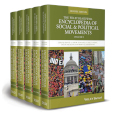Experimental Methods
Abstract
Although “experiments” are popularly understood as research done in a laboratory, for social scientists the key element of an experiment is at least one manipulated independent variable. A variable is manipulated if the researcher can determine who experiences each category (or treatment) of the variable. A “true” experiment is one in which the researcher randomly assigns subjects to different categories (treatments) of the independent variable. This random assignment (randomization) can yield high internal validity in assessing the causal effect of the independent variable on the dependent (outcome) variable. There have been important randomized field experiments in policy areas such as education, welfare provision, population control, or medical treatments. Market researchers may use randomized field experiments to test the impact of different advertising campaigns and some professionalized social movement organizations have used this kind of field experiment to test the impact of various ways of “marketing” their issues. Smaller voluntary groups might also find it valuable to use rigorous experimental methods to test their persuasive tactics, although they rarely do.



